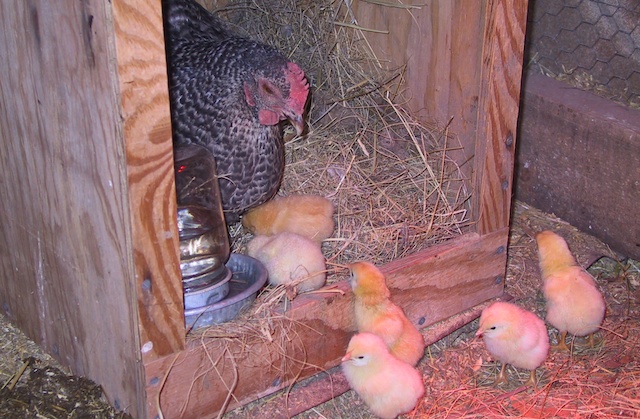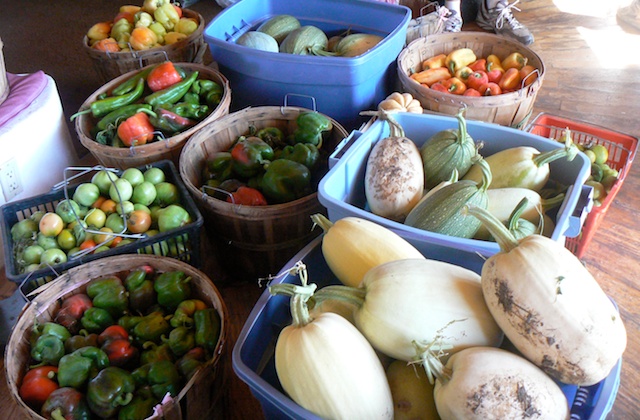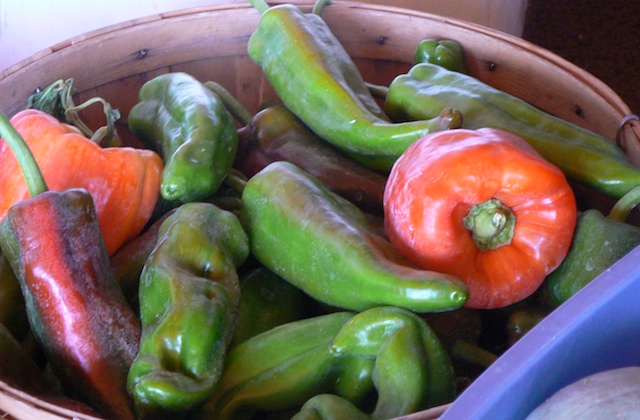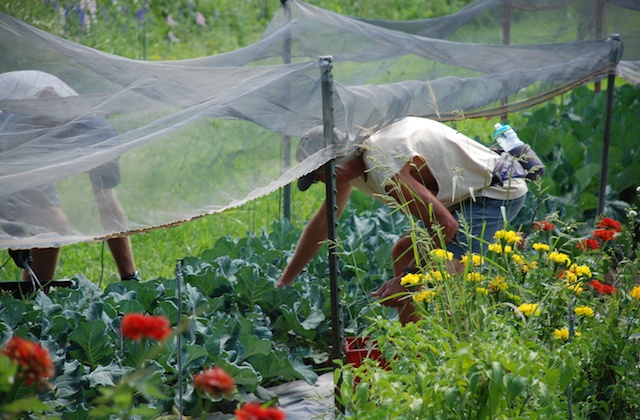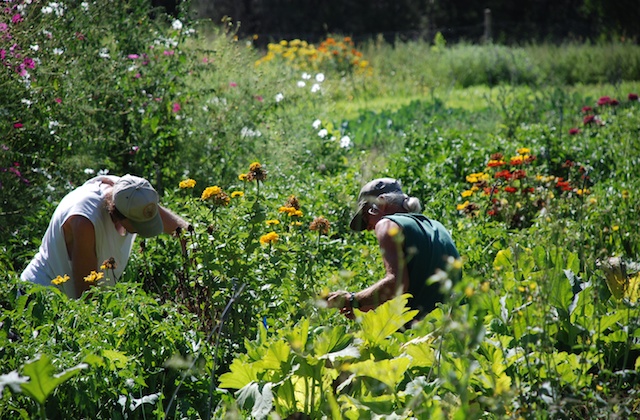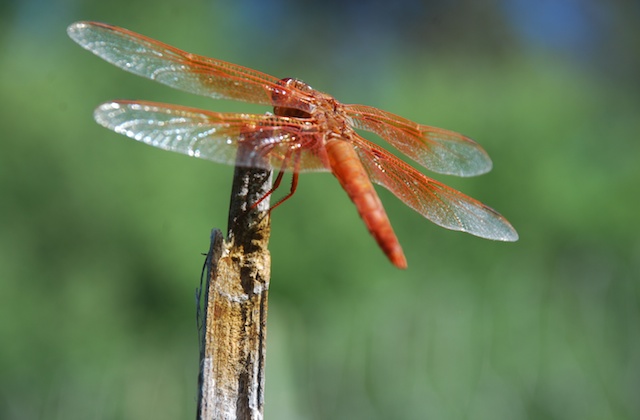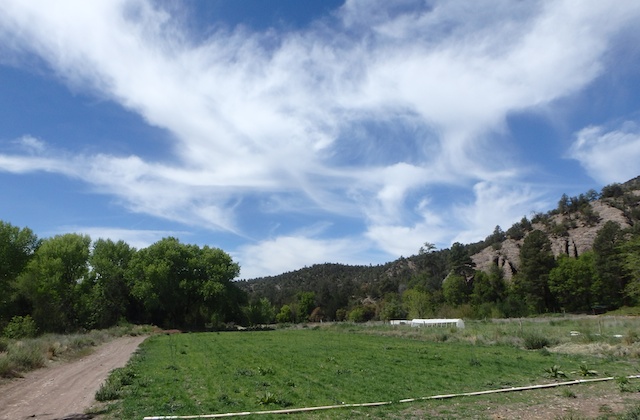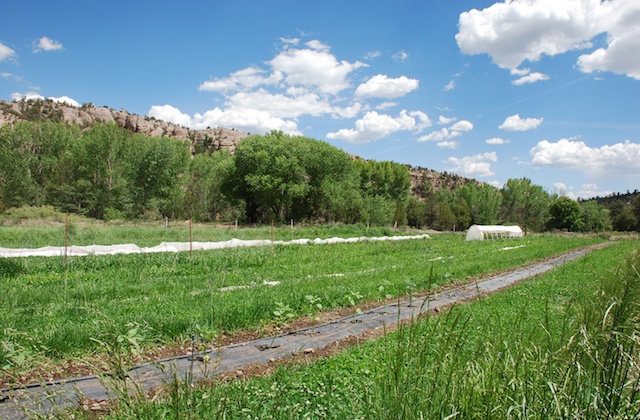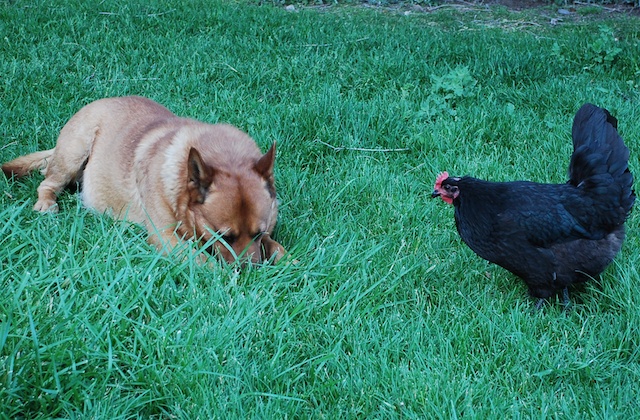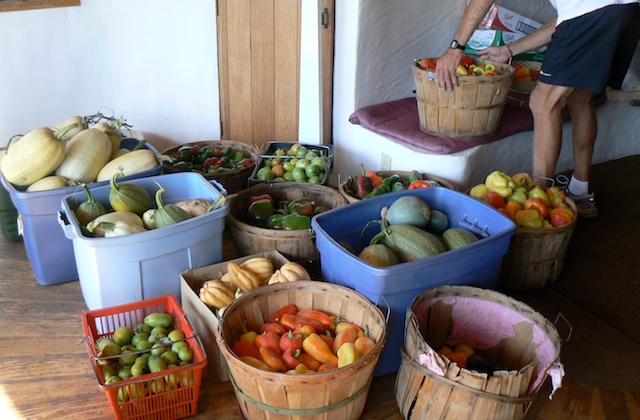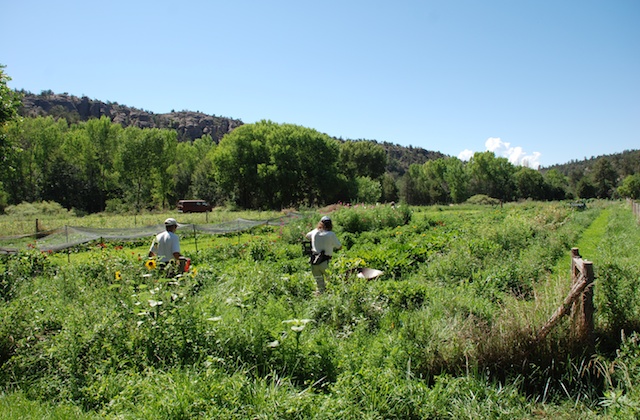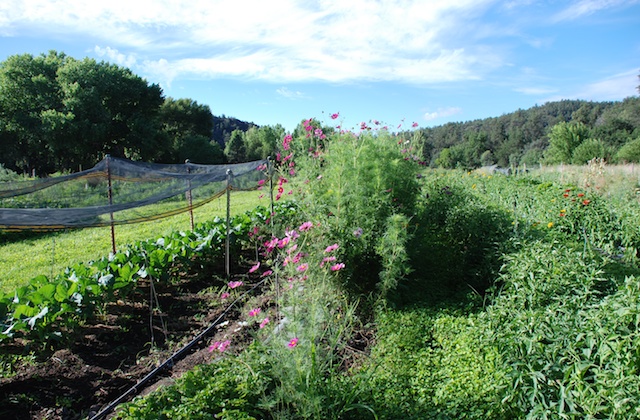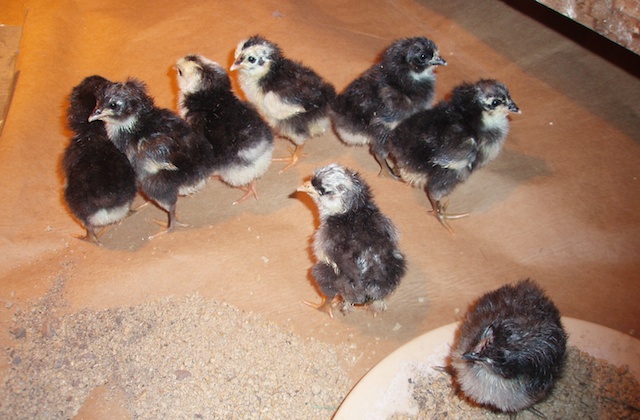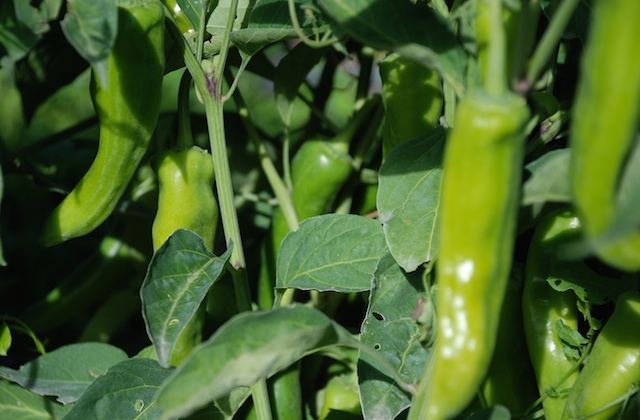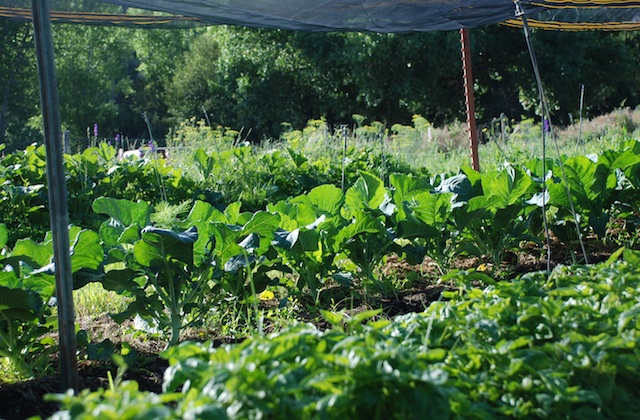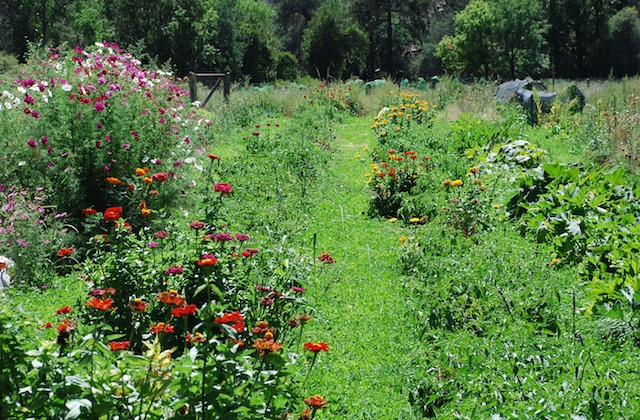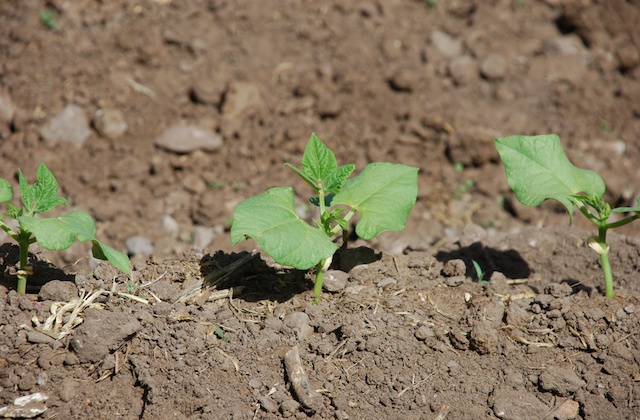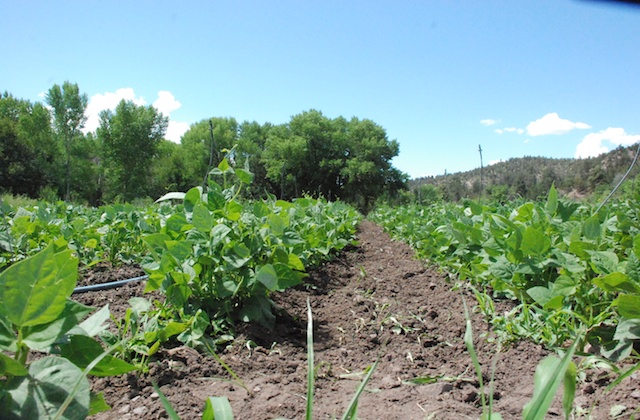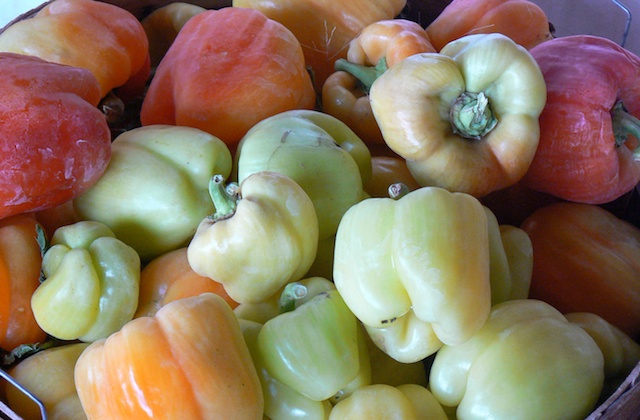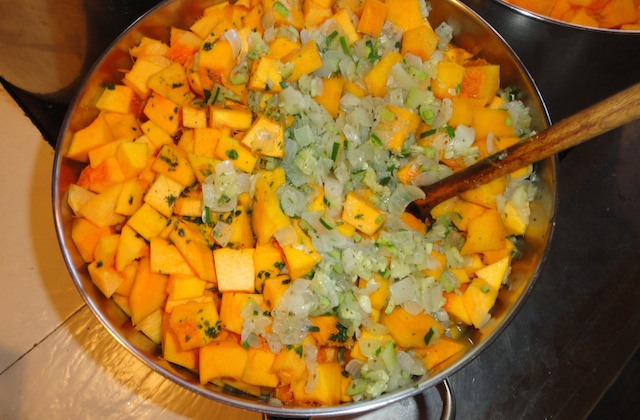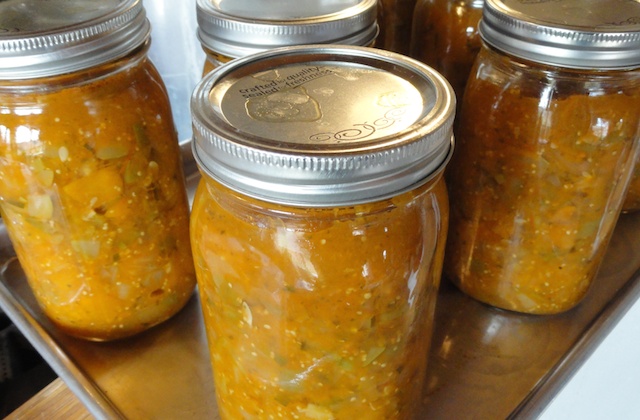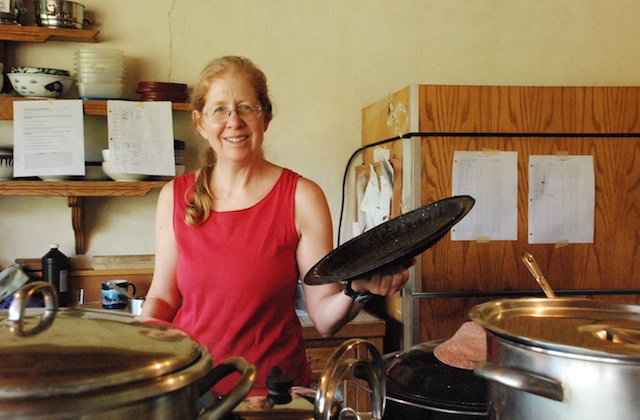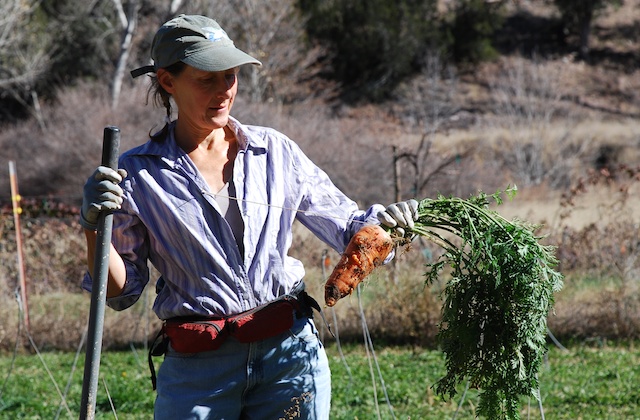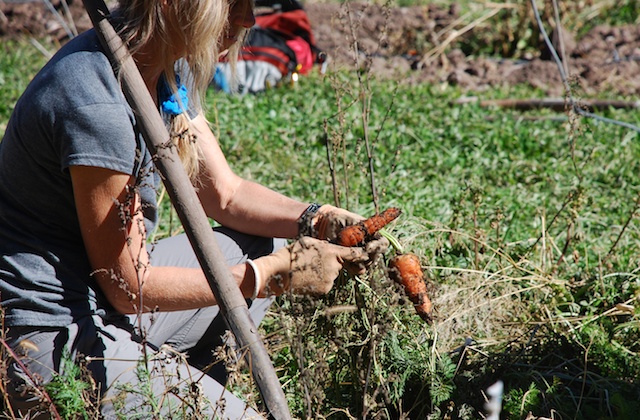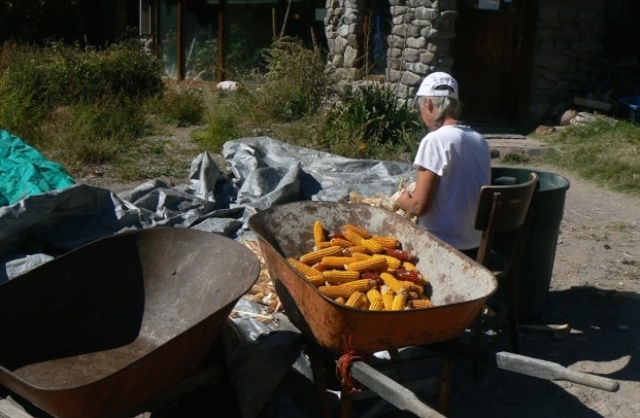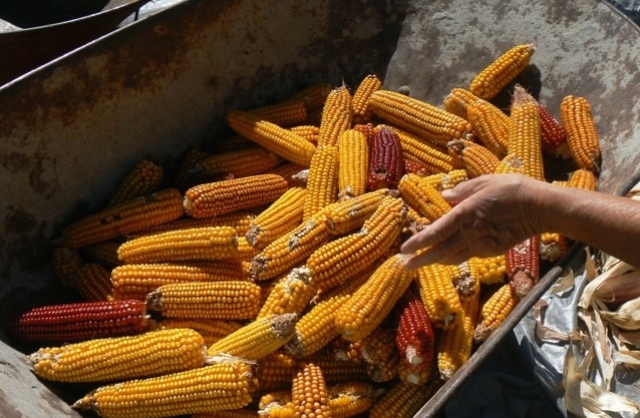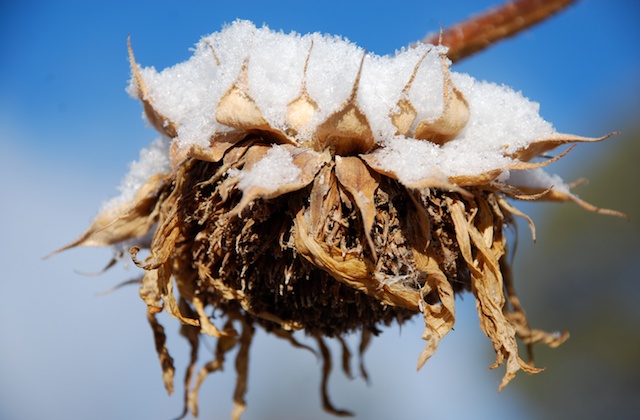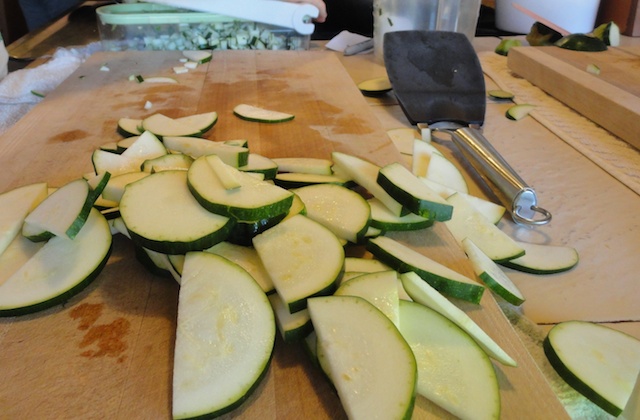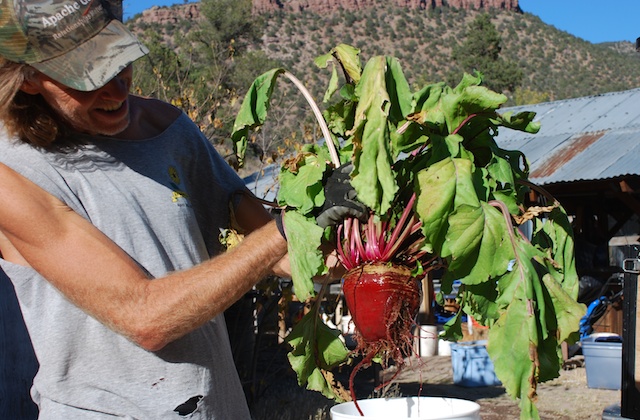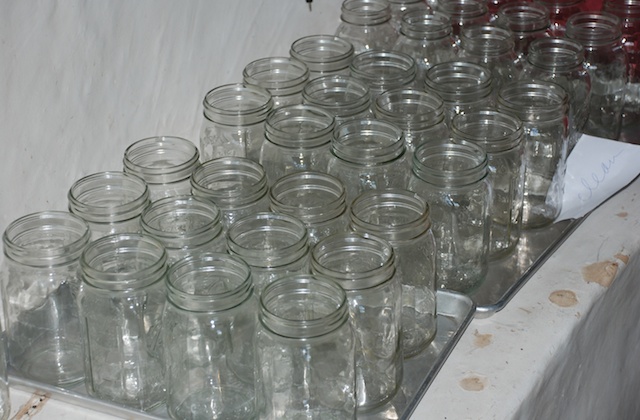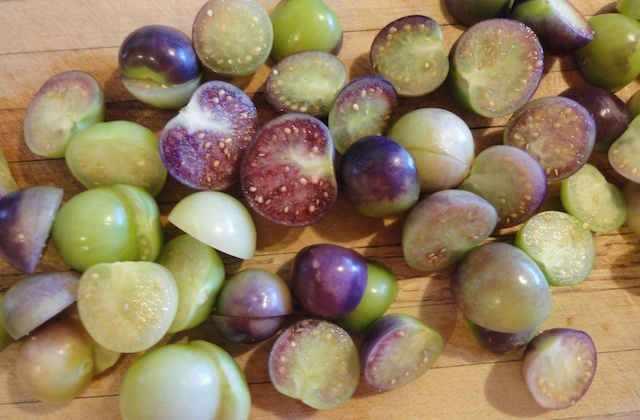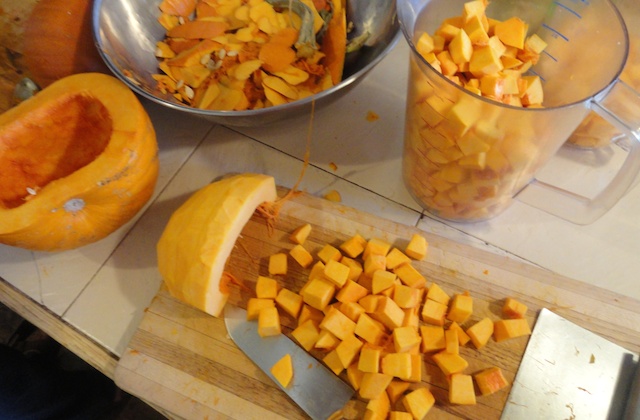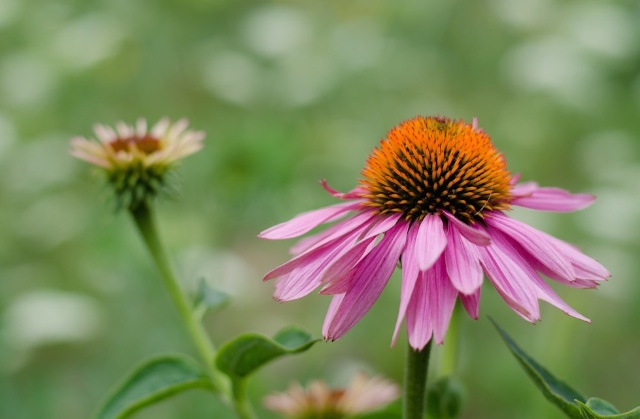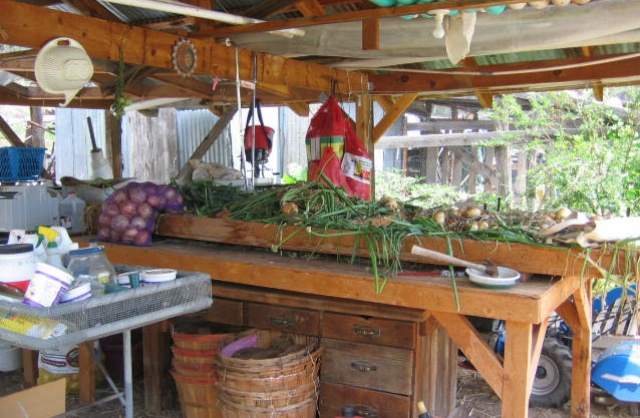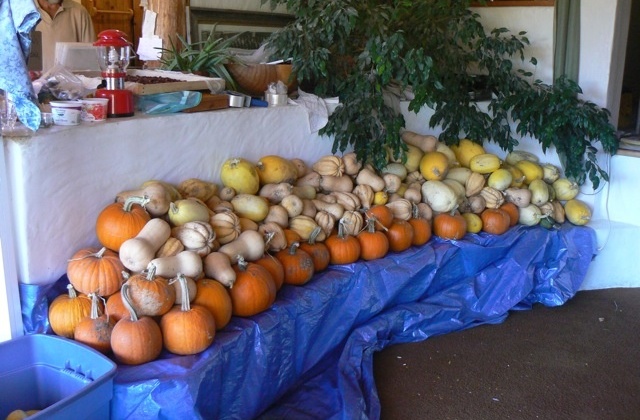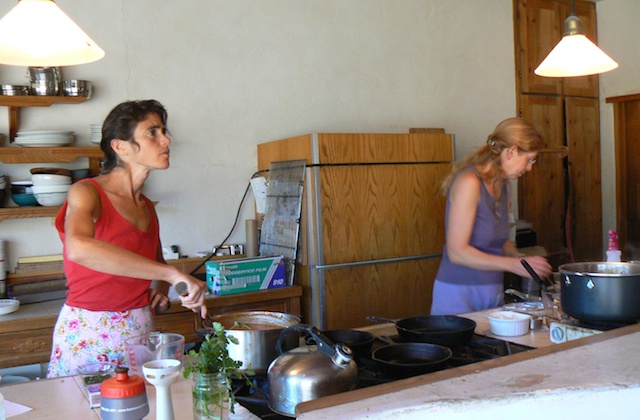We have 24 acres of certified organic farmland, with a large garden, nine irrigated fields, an orchard, small greenhouse. In our fields we grow alfalfa and grass hay and a variety of beans—pintos, blacks, and anasazis. Some years we also grow corn which we grind into our own cornmeal. In the garden we grow herbs, fruits such as grapes, strawberries, blackberries, raspberries, and all kinds of vegetables including tomatoes, tomatillas, brassicas, chilis, onions, carrots, and potatoes. We supply a large portion of our food needs for our residents and guests. Through traditional food preservation techniques such as canning and freezing, we are able to enjoy the bounty of the garden throughout the year.
Gardening in the arid high desert New Mexico climate with rocky soils and a short growing season can be challenging. Over the years we have built up our soil through the use of cover crops. We irrigate the gardens and fields from the river, and we use overhead sprinklers and drip tape on the garden. We employ different season extension techniques to get our vegetables planted out early and keep them going through the early frosts. These include using a lot of row cover, building small, mobile plastic tunnels and developing a larger tunnel out of row cover for our tomatoes which helps with pests as well as keeping our tomatoes alive through the light frosts.
In our small greenhouse, we grow greens in the winter and our own starts in the spring. We use a heated waterbed from January to May, which warms the soil in the seed flats and allows them to germinate and get a good start as seedlings.
There is a satisfaction and nourishment in participating directly in complete life cycles—from fallow ground to planting seeds and starts to growing, harvesting, and preserving. All of us at the Retreat work and contribute to the garden and fields at different times of the year. People who do this kind of work have a special bond with these cycles and rhythms of nature. Many of our guests, both children and adults, help out in the garden so they can experience the power of this. Especially for children, getting their hands in the soil and learning where food really comes from can be an important experience. It is a valuable vehicle for teaching awareness of environment and learning about sustaining oneself and others.
It is possible to produce a great deal more food by natural methods than is being done at present, but that means a more labor intensive food production. Instead of the present situation in which as few as 5% of the people produce by mechanization the food that is required for an industrial population, having the result that the other 95% get crowded into cities where they live miserably. It is possible for people to engage to a far greater extent in food production, to have a more satisfying life on that very account, and to have better quality food—providing, of course, that we don’t make the same mistake that is being made today, of making it all intolerably dull. And it is! Agriculture is becoming intolerably dull, and this is really the chief reason for the flight from the land. To make the production of food interesting, it must be undertaken by communities that have other interests.
—J.G. Bennett
